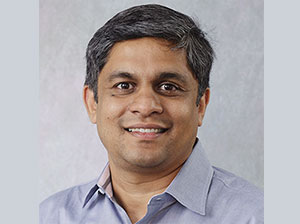Monsanto’s modern approach to workforce
 |
How is the global working environment changing? And what do you think are the causes behind these developments?
It’s evident that technology and innovation are changing various aspects of the world, including businesses. Thanks to technological developments, companies can expand their businesses across countries and cultures more easily. There are other distinct factors like climate change and changing demographics that offer companies the opportunities to explore different products and solutions for newer markets across the globe.
Asia is home to more than 4 billion people with rising incomes and needs. This has created a distinct focus towards Asia and specifically developing markets within the continent. While opportunities exist, companies will also have to recognize the different needs of the customer and other stakeholders. Collaboration, working together and creating an environment that encourages creativity and innovation will be the key to successful partnerships.
With changing demographics, emerging markets such as Vietnam enjoy a young, growing population, who are both potential workers and consumers. There is a shift in the customer base, talent pool and rapid technological advances. The global workplace is therefore becoming more multi-cultural, diverse and change continues to be the only constant.
In what ways do these changes affect companies’ human resources? What are the new competencies that employers look for in their staff?
As customer needs become more localised, complex and the need for technology to provide solutions become more evident, businesses around the world will increasingly depend on specialists, both technical and otherwise. Their HR strategies are likely to focus on creating a strong talent base of technical experts, specialist skills, creativity and flexible mindsets. Importantly, a culture that fosters leadership through inclusion, influence, innovation and collaboration in an increasingly multi-cultural and diverse workplace will be critical.
Learning will continue to be a critical aspect of an individual’s career. This is very likely to be at a much more dramatic scale. Fast changing technologies and solution delivery platforms are likely to force a continuous process of “learning, unlearning and relearning”.
I think these strategies will reflect the “glocal” mind-set that is so important in this era. Interactions across countries and cultures in such a large scale will be more commonplace than ever before.
How is Monsanto incorporating these new HR strategies into its business practices?
Monsanto is working together with our stakeholders for sustainable agriculture by bringing a broad range of solutions to help nourish our growing world and collaborate to help tackle some of the world’s biggest challenges in agriculture. Technology is changing the agricultural sector that we operate in very rapidly due to break-through innovations in farming and cultivation.
We always put our customers, who are our farmers, at the heart of our business and we strive to solve problems for our customers through our products and solutions leveraging our focus on technology. The technical skills of our employees continue to be a core focus area. We emphasise on leading through influence, and our leaders are encouraged to focus on developing our people and teams. Our employees learn through intentional on the job experiences, coaching, mentoring as well as conventional learning sessions delivered through classroom sessions as well as learning sessions online.
We have been recognised as a company that encourages diversity and we strive to create an inclusive environment for a productive multi-cultural talent pool. We have also been recognised as a Great Place to Work® across multiple geographies.
Can you elaborate on what Monsanto has done in Vietnam to help cultivate the next generation of employees, who are currently university students?
Our focus is helping Vietnamese students develop key competencies for the international working environment. Every year, we visit various universities across the country to hold seminars and share sessions on workplace skills. We’ve joined numerous job fairs and exhibitions at universities to meet students. We always welcome them to do internships at our company and some of them become employees at a later stage.
Most notably, we’ve signed Memorandums of Understanding with the University of Agriculture and Forestry in Ho Chi Minh City and the Vietnam National University of Agriculture in Hanoi (VNUA).
Over five years, we’ve committed VND1.5 billion ($67,200) for the scholarship fund with the VNUA. Each year, five students from the biotechnology department are awarded $2,000 each, and $5,000 is granted to research projects at the VNUA.
What the stars mean:
★ Poor ★ ★ Promising ★★★ Good ★★★★ Very good ★★★★★ Exceptional
Latest News
More News
- The generics industry: unlocking new growth drivers (February 04, 2026 | 17:39)
- Vietnam ready to increase purchases of US goods (February 04, 2026 | 15:55)
- Steel industry faces challenges in 2026 (February 03, 2026 | 17:20)
- State corporations poised to drive 2026 growth (February 03, 2026 | 13:58)
- Why high-tech talent will define Vietnam’s growth (February 02, 2026 | 10:47)
- FMCG resilience amid varying storms (February 02, 2026 | 10:00)
- Customs reforms strengthen business confidence, support trade growth (February 01, 2026 | 08:20)
- Vietnam and US to launch sixth trade negotiation round (January 30, 2026 | 15:19)
- Digital publishing emerges as key growth driver in Vietnam (January 30, 2026 | 10:59)
- EVN signs key contract for Tri An hydropower expansion (January 30, 2026 | 10:57)
















 Mobile Version
Mobile Version